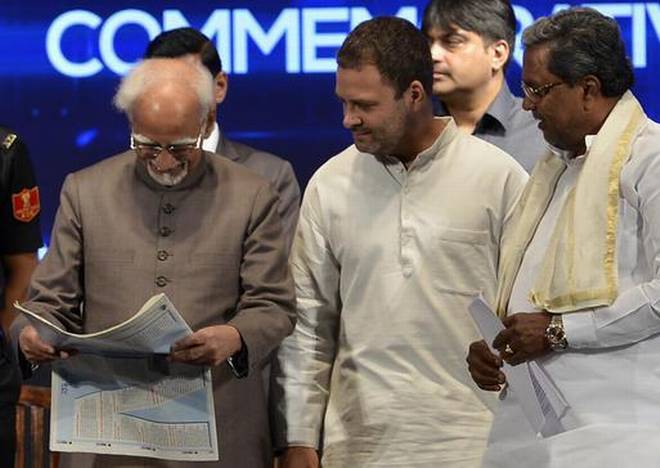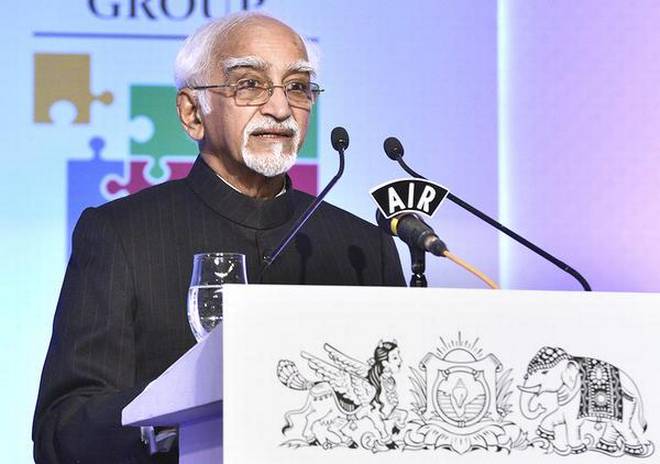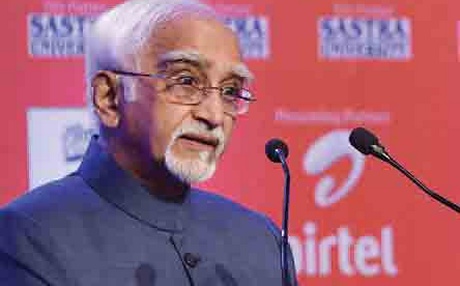Kolkata, WEST BENGAL / NEW DELHI :

Bengaluru :
Vice President Mohammand Hamid Ansari, on Monday, said a free media is not only beneficial but also a necessity in a free society and any attack on press freedom will result in jeopardising citizens’ rights.
Mr. Ansari, who launched National Herald’s commemorative publication – “70 years of India’s Independence” – in the presence of All India Congress Committee Vice President Rahul Gandhi at a function here, said the State should not impede the free flow of information.
When faced with unjust restrictions and the threat of attack, self-censorship in the media could have the opposite effect, aiding the covering up of abuses and fostering frustration among marginalised communities.
Mr. Ansari also said the Constitutional framework provided for required intervention by the State to ensure smooth working of the press and society; but the laws state that it should only be in the interest of the public at large. “The media, if it is to remain true to its calling, has to do likewise. In an open society like ours, we need a responsible press to hold power to account. This is why freedom of press under Article 19 (1)(A) of the Constitution is subject only to reasonable restrictions in the interest of the sovereignty and integrity of India, the security of the state, public order, decency, contempt of court, defamation and incitement to an offence.”
The Supreme Court has held that ‘freedom of speech and of the press is the Ark of the Covenant of Democracy’ because public criticism is essential to the working of its institutions. In this age of ‘post-truths’ and ‘alternative facts’ where ‘advertorials’ and ‘response features’ edge-out editorials, “we would do well to recall Jawaharlal Nehru’s vision of the press playing its role of a watchdog in democracy and look at the ethos and principles that powered his journalism.”
Noting that Nehru, who started National Herald newspaper, believed that media was a pillar of democracy, Mr. Ansari said he envisioned a free, unfettered and honest press. “Nehru watched over the interests of media persons in independent India.”
The Working Journalists Act, which tried to give a degree of protection to journalists, to ensure freedom of press, was largely Nehru’s doing.” However, the Act, I believe, is now in disuse, and short term contracts, that make journalists beholden to the ‘preferred lines’ of the publications, are in vogue.”
Chief Minister Siddaramaiah said it was heartening to note that the Associated Journals Ltd. is reviving National Herald by launching its English website and resuming phased publication as a multi-media outlet, focusing primarily on a news presence in digital form.
source: http://www.thehindu.com / The Hindu / Home> News> States> Karnataka / by Special Correspondent / Bengaluru – June 12th, 2017










